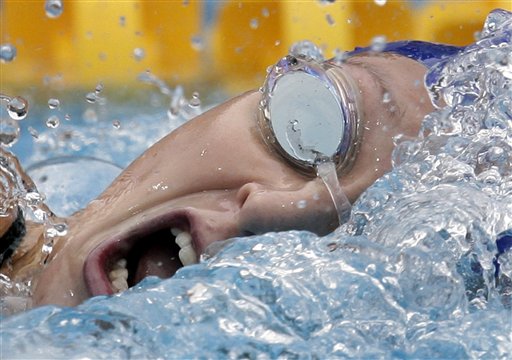UNLEASHING THE WATCHDOG
copied from http://hermes.wits.ac.za/wcs/display_article.asp?id=571
Kenyan whistle-blower and former anti corruption chief, John Githongo will be coming to South Africa to launch the 2006 Power Reporting Workshop hosted by the Investigative Journalism Workshop (IJW) at Wits University.
Githongo, left his post as Permanent Secretary for Ethics and Governance in the Office of the President in early 2005 and sought refuge in the UK after having uncovered corrupt dealings worth millions of dollars under the new regime of Mwai Kibaki. Githongo will deliver a keynote speech on whistle-blowing and witch hunts. He, together with another fearless journalist in exile Geoffrey Nyarota, Zimbabwean Daily News founder, will conduct a workshop on 'Holding Governments to Account'.
The three day Power Reporting Workshop is the second international conference for investigative reporters hosted by the IJW in two consecutive years. It is organised in collaboration with the London Centre for Investigative Journalism (CIJ) and the Johannesburg Institute for the Advancement of Journalism (IAJ) and will take place from August 28-30 in Johannesburg.
Acclaimed national and international investigative journalists have confirmed their participation and will be teaching a host of tools and techniques which add value to any story in the newsroom. The topics to be covered reach from covert and non-covert reporting to investigating business and resource exploitation, sources and spin-doctors, forensic interviewing techniques and computer assisted reporting (CAR). The Workshop’s objective is to encourage a media culture that looks behind the façade.
“Unleashing the watchdog in our local and regional media is one of our prime goals at the Investigative Journalism Workshop,” says Birgit Schwarz, IJW Director.
“We have a fine and rich tradition of investigative journalism in this country.” says Anton Harber, Caxton Professor of Journalism and Media Studies at Wits University. “But we need to rekindle the watchdog culture we once had”, adds Schwarz, “and remind ourselves that to be the voice of the voiceless is no less important in a democracy than it is in a country with an oppressive regime.”
To dig deeper on a daily basis is especially important in a young democracy, says Schwarz. By providing practical workshop sessions and networking opportunities with top investigative reporters from abroad and the region, the IJW, which is a USAID funded project, hopes to empower local journalists with the tools that will help them improve their investigative reporting skills. “We want to unleash the urge to probe and to provide the tools to do so effectively”, says Schwarz.
One who will provide the latest tools available to reporters is Tommy Kaas. Kaas is editor at the Danish International Centre for Analytical Reporting (DICAR) and has trained reporters all over the world in subjects like advanced internet research, spreadsheets, database managers and social networks analysis. Kaas will conduct a whole series of computer assisted research (CAR) workshops for different levels of experience.
Others such as British journalist Michael Gillard, who has written extensively on financial and organised crime as well as corruption, or Gavin MacFadyen, Director of the Centre for Investigative Journalism in London, will conduct workshops on more traditional tools of forensic reporting such as ‘Reading Company Accounts’ and ‘Covert Reporting’.
From the region, award winning Kenyan journalist Joyce Mulama will conduct a workshop on social investigations; senior Tanzanian investigative reporter Benjamin Thompson will together with Global Witness researcher and Namibian reporter John Grobler explore issues of resource exploitation, while leading South African investigative reporters such as Sam Sole, Wisani waka Ngobeni, Martin Welz, Deon Basson and Ruda Landman will share experiences, case studies and tools of their trade with delegates.
An exhibition of Great South African Investigations will be launched at the 2006 Power Reporting Workshop to demonstrate that investigative journalism has a proud and established history in South Africa and to encourage young up and coming journalists to follow in the footsteps of those who braved the authorities in the hope and ambition to fight injustice and the abuse of power in the name of their readers.
The workshop programme and speakers’ biographies can be found at www.journalism.co.za.


0 Comments:
Post a Comment
Subscribe to Post Comments [Atom]
<< Home